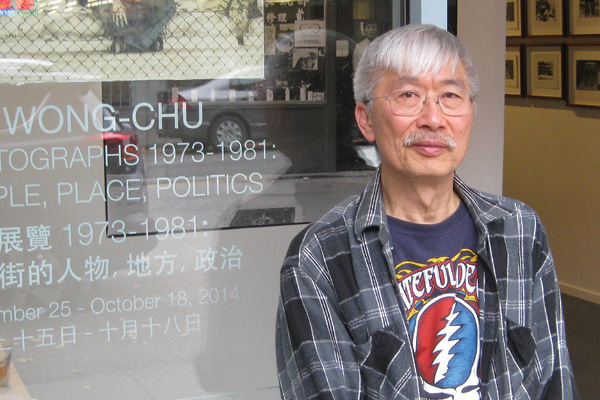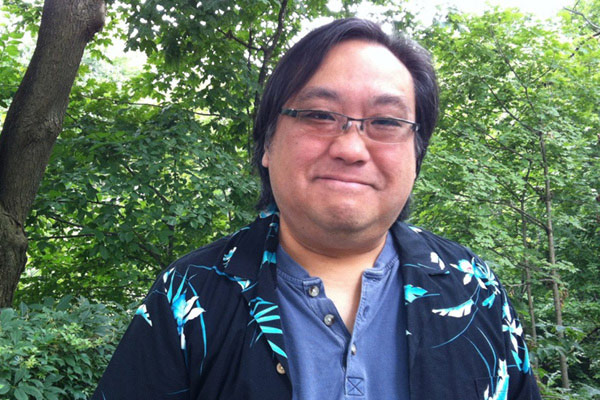by Terry Watada
We all observe customs and traditions no matter our background. They define us, they link us together, they identify us. Pity is the individual who rejects them because they are ashamed of their upbringing, their culture, their identity. “I’m just a Canadian” is a telltale sign of a lack of insight. Oddly these customs can be observed on various levels: from the day to day as I began to outline last month to the grander scale of politics. For example, a homeless tent city appeared in the Kaka’ako area of Honolulu in about 2011. And it is still there today, and in fact, it is growing. The area was the industrial heart of the city but of late has become the centre of new development with multi-million dollar condos and upscale shops and restaurants. The homeless in part are protesting the development and the sky-high real estate prices. Removing them is a priority for the city and state governments, but nothing has been done. Interesting to me that the governor is Okinawa-Japanese American and the mayor is haole (white) but all their advisors and spokespeople are Japanese American. Could the inaction be attributed to enryo? In any case, what follows is the rest of my observations. See if you are turning into your parents.
You don’t like public displays of affection. It’s worse when strangers give you a hug. Now I do acknowledge that some Nikkei families insist that everyone hugs everyone at gatherings. And more power to them, but I hope they understand the shudder of discomfort that comes over me.
Again, in connection with the above, you may succumb to the urge to hug, but you see that same hesitation in other Nikkei who share that same reluctance.
You always bring something/anything (mostly food but a bouquet of flowers is good) to a dinner party. When someone doesn’t to your house, you feel slighted but once again, as I said last month, you say nothing.
Even if you are enthusiastically encouraged at a dinner party to “eat, eat. I made too much”, you don’t unless you want to be the subject of gossip. “You should’ve seen how much he ate! No leftovers.”
Be careful. If you don’t eat enough, you will also be the topic of some later discussion. “Eats like a bird” or better still “He/she finds my cooking offensive.” That last one is an embellishment on my part but true in spirit.
You always announce to your guests as you serve your food: “Oh there’s nothing here but eat anyway.” Better still, “This food doesn’t taste very good but eat anyway.” And heaven’s sake, don’t agree with the pronouncement. And if you’re hakujin don’t retort: “All you need is a little soy sauce.” And continue to drench the dish black with the condiment. Nisei and some Sansei too have been known to put shoyu on everything. There’s always ketchup.
You seldom accept leftovers unless coerced by the host. You probably store them in your refrigerator until they become a science project and then you throw them away.
You always send thank you cards after receiving a gift or having attended a dinner party. You make your kids work up thank you cards. My mother and brother used to phone the next day to thank the host. I just send e-mail. If you don’t do that, the giver of the gift or host of the party will assume the worst. “They didn’t like the gift. They didn’t get the gift in the mail. It was stolen. They find my cooking offensive. Why don’t they cash the cheque?” You get the picture.
You spurn selfies, selfie sticks, Facebook , Twitter, Pinterest, maybe even e-mail. You consider them a colossal waste of time. Anyone over 20 to about 35 considers you a Ludditte. Google the word if you’re approaching seniorhood and see if you agree. Oh right, you don’t have a computer.
Hashi are always a problem. You never drum them and sternly stop your children if they do. You don’t stick them in your hair as a fashion statement. You never stick them upright in your rice because they look like grave markers. You never use the business end of chopsticks to take morsels of food for your plate – unless you are eating family-style with family. Never pass food hashi to hashi, unless you are cremating a body. Hakujin commit these atrocities all the time so you might say something because the habits are irritating. But you typically don’t.
You shave waribashi because they may contain slivers. Don’t do it; you are saying you are in a low-quality and cheap restaurant. You never do the same with good hashi.
As a matter of course, you offer rides to car-less guests. When you arrive at their house, you wait until they open the front door and go inside. For their part, the rider will wave goodbye and wait for you to leave. This may be awkward. Who leaves first? I bet there is somebody still at his/her door waiting for the driver to leave. Probably been in a standoff since 1977.
Whenever you travel, you bring home omiyage. How many and how expensive depends on your family and friends. If you are meeting friends where you are travelling, you better bring them an omiyage too. Someone I know once declared he wasn’t going to do it anymore. Seemed like a waste of time. So he didn’t and now has no friends.
If you don’t get an omiyage, you, as I said before, won’t say anything. Why, you may ask? You don’t like confrontation and you don’t want to cause embarrassment. Weren’t your parents nice people? Aren’t you? Of course you are, it’s part of our identity.


